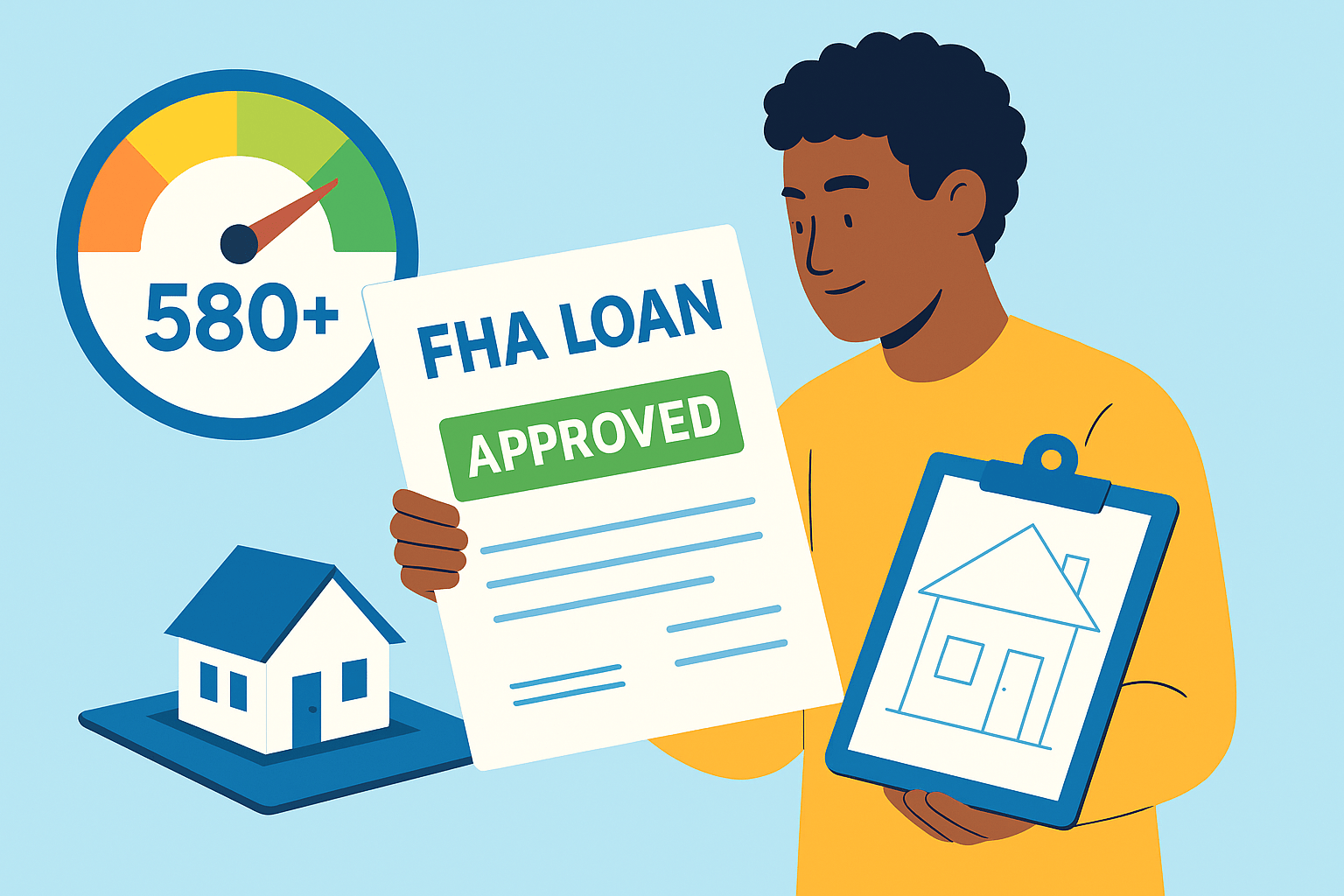Mortgage Credit Certificate First-Time Homebuyer Assistance Programs
Mortgage Credit Certificate: Oregon’s Secret Weapon for First-Time Homebuyers
Buying your first home in Oregon can feel like paddling upstream—prices rise, rates bounce, and closing costs lurk like hidden rocks. Enter the Mortgage Credit Certificate, a state-backed tax tool that converts a slice of your annual mortgage interest into a dollar-for-dollar federal tax credit. That credit, in turn, flows back into your monthly budget, lightening the mortgage payment load from day one.
How the Oregon Mortgage Credit Certificate Works
A Mortgage Credit Certificate (often shortened to MCC) is issued by the Oregon Housing and Community Services Department (OHCS). In simple terms, it turns up to 20% of the mortgage interest you pay each year into a federal tax credit—not a deduction. The remaining 80% of interest stays on Schedule A as an itemized deduction, so you don’t lose traditional write-offs.
The Tax Math Behind an MCC
- Mortgage balance: $350,000 at 6.5%
- Year-one interest: roughly $22,400
- Credit rate: 20%
- Annual tax credit: $22,400 × 0.20 = $4,480
- Monthly savings when credited against withholdings: about $373
Because the credit directly reduces federal tax due, many lenders let you count the projected savings as qualifying income. That can boost buying power by $30,000+ without raising debt ratios, according to internal underwriting data from a Portland-based lender interviewed for this article.
Who Qualifies for an Oregon Mortgage Credit Certificate?
The program is laser-focused on first-time buyers—defined as anyone who hasn’t owned a home in the past three years. But geography, income, and purchase price caps also apply. Most counties follow limits tied to area median income (AMI), updated every spring.
Income & Purchase Price Limits for 2024
For example, the 2024 income ceiling in Multnomah County is $116,600 for a 1- to 2-person household, while the maximum home price sits at $481,176. Rural counties tend to allow lower purchase prices but also lower incomes, reflecting local markets. Verify the latest chart on the OHCS site before drafting an offer, because exceeding any limit—by even one dollar—voids eligibility.
Is a Mortgage Credit Certificate Worth It? (PAA)
Home shoppers frequently ask whether the MCC’s savings outweigh its upfront fee (around $750–$900, depending on the lender). The answer hinges on loan balance, tax bracket, and how long you keep the home. The credit lasts for the life of the mortgage, up to 30 years, and it can be combined with refinancing later as long as the loan amount is not increased.
A quick break-even test: if the fee is $800 and your projected first-year credit is $2,000, the program pays for itself before your second summer barbecue in the backyard. Even in lower-cost parts of Oregon, an MCC typically returns two to four times its fee in the first 12 months alone.
How Do I Apply for a Mortgage Credit Certificate in Oregon? (PAA)
You can’t apply directly to OHCS. Instead, you must work with a lender approved to finance and issue the certificate. The lender:
- Confirms you’re a first-time buyer (or purchasing in a federally designated targeted area where the three-year rule is waived).
- Checks income and price limits against current OHCS tables.
- Uploads your signed application, tax returns, and compliance affidavits to OHCS for final approval before closing.
Timing matters. Because the MCC is tied to the original note, it must be issued before or on the closing date. Start the paperwork as soon as your purchase contract is accepted to avoid a last-minute scramble.
Micro-Story: Jess & Marcos Turn Tax Credits into Daycare Dollars
Jess, a nurse at Salem Health, and her partner Marcos, an elementary school teacher, closed on a $380,000 bungalow last May. Their lender suggested the Oregon mortgage credit program, estimating a $2,540 annual credit. Skeptical but hopeful, the couple adjusted their W-4 allowances to capture the savings in each paycheck. By December, they had pocketed roughly $2,000—exactly the cost of two months of daycare for their toddler. “We didn’t feel richer,” Jess laughs, “but we sure felt less broke.” Their story illustrates how the MCC delivers cash flow when new homeowners need it most.
Pros & Cons of the MCC vs. a Rate Buy-Down
Many buyers debate whether to spend cash on discount points to lower the rate or on the MCC fee. Below is a side-by-side view:
- Predictability: The MCC credit rises and falls with interest paid—not market indexes—while a temporary buydown ends after 12–36 months.
- Liquidity: Upfront cost for the certificate is usually under $1,000; a single point costs 1% of the loan amount.
- Longevity: The MCC remains until the loan is paid off or refinanced higher; buydown benefits stop sooner.
- Tax Impact: Credits offset tax due dollar-for-dollar. Rate buydowns lower interest, indirectly reducing taxable interest deductions.
- Resale: An MCC is not assumable by a future buyer, while a low note rate can sweeten resale value.
The right choice depends on your horizon. If you plan to keep the home longer than five years and anticipate stable income, the Mortgage Credit Certificate often provides superior net savings.
Frequently Asked Questions
Does an MCC affect my ability to itemize deductions?
No. You still deduct 80% of your mortgage interest. Only the credited portion is removed from Schedule A.
Can I combine the program with FHA, VA, or USDA loans?
Yes. Conventional, FHA, VA, and USDA 30-year fixed mortgages all qualify, but adjustable-rate products do not.
Will I owe a recapture tax if I sell?
Possibly. If you sell within nine years and your income has climbed significantly, a federal recapture tax may apply, capped by IRS formulas. Most sellers either age past nine years or fall below income triggers.
What happens if I refinance?
You may reissue the certificate on a rate-and-term refinance (no cash-out) as long as the principal balance isn’t higher. Ask your lender for a “re-issuance” within one year of closing.
Can the MCC be used with down-payment assistance?
Absolutely. Programs like the Oregon Bond, Chenoa Fund, or local city grants can pair with the credit as long as combined income and price limits are not exceeded.
Ready to Make Your First Home More Affordable?
If you’re shopping for a house anywhere from Astoria’s sea-salt streets to Bend’s high-desert trails, the Mortgage Credit Certificate could free up hundreds every month—funds that can fuel home maintenance, student loans, or your next Mt. Hood ski pass. Talk with one of our vetted Oregon lending partners today and see how much tax credit power you can unlock.
Suggested URL slug: /oregon-mortgage-credit-certificate-first-time-buyer-guide
Explore More Blog Posts
Checkout more similar posts those will help you to choose better property.












 Profile
Profile Password
Password Saved Properties
Saved Properties Sign Out
Sign Out
 +0.01
+0.01
 -0.15
-0.15

